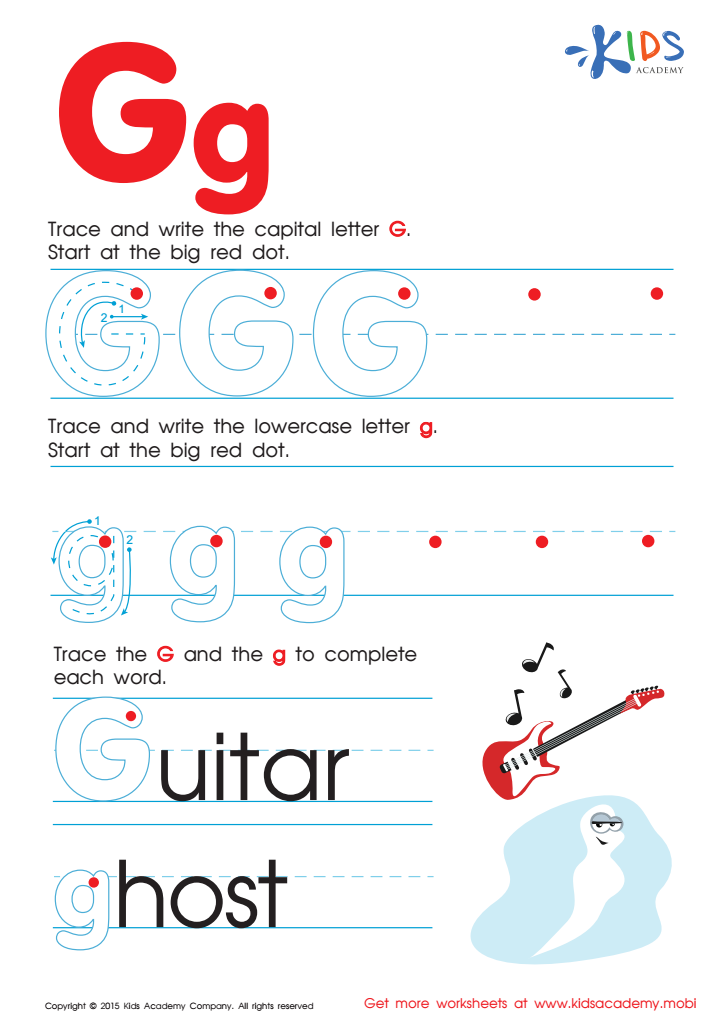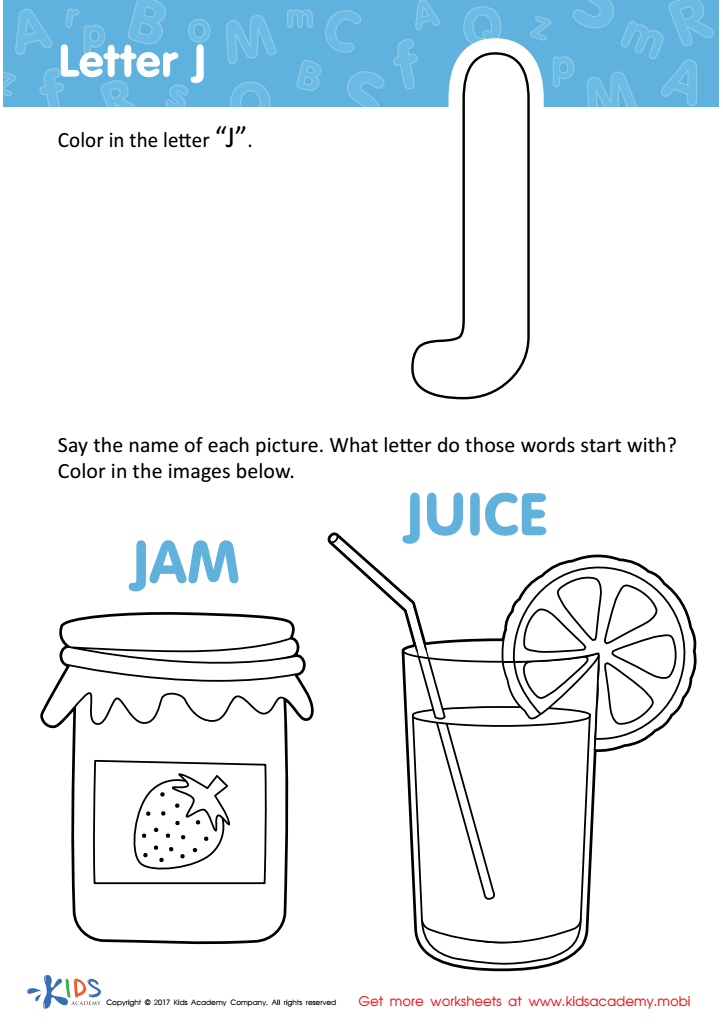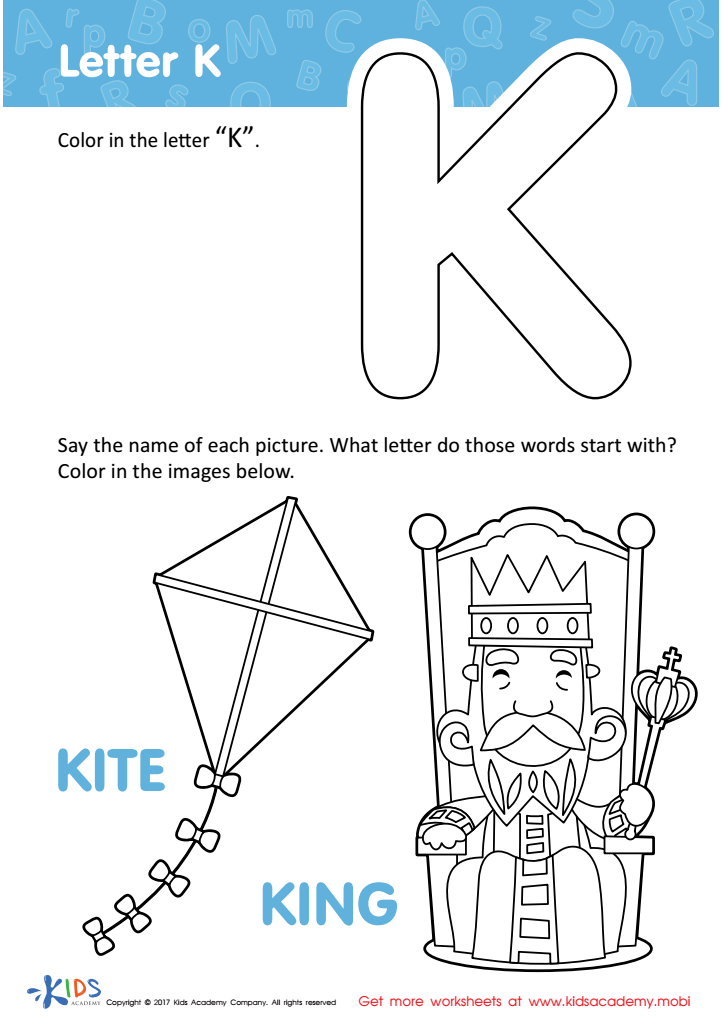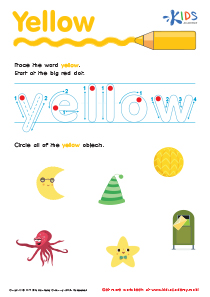Alphabetical order understanding Normal English for Beginners Worksheets for Ages 3-5
3 filtered results
-
From - To
Discover our engaging Alphabetical Order Understanding Worksheets designed for beginners aged 3-5! These worksheets help young learners grasp the basics of alphabet sequencing in normal English, developing crucial early literacy skills. Featuring colorful illustrations and fun activities, our worksheets make learning exciting. Perfect for preschoolers, these resources cater to children learning English as a second language too. Help your child or student build a strong foundation in reading and organizing words with ease. Enhance their learning experience with our expertly crafted worksheets, available for easy printing from Kids Academy. Make alphabet learning a delightful adventure!


Letter G Tracing Page


Letter J Coloring Sheet


Letter K Coloring Sheet
Understanding alphabetical order is a foundational skill for young learners, and parents or teachers should prioritize it for children aged 3-5. Learning the alphabet in order lays the groundwork for reading and writing, critical components of literacy. Alphabetical order helps kids recognize that letters are a sequence, which enhances their ability to recall and differentiate between each letter. This process is essential for phonemic awareness—understanding that words are formed by individual sounds represented by letters.
Furthermore, grasping alphabetical order aids in the development of organizational skills. Young children start to see patterns and structures in seemingly random assortments of letters, which in turn boosts their cognitive abilities, such as memory, attention to detail, and logical thinking. Alphabetical order also plays a critical role in using reference materials and resources effectively later on. They become able to navigate through dictionaries, encyclopedias, and libraries more confidently, fostering a sense of independence in learning.
Moreover, early familiarity with alphabetical order can make the learning process enjoyable and engaging. Singing the ABC song or participating in playful activities makes education a positive experience. Therefore, early exposure to alphabetical order sets the stage for academic success and lifelong learning, making it a crucial element in early childhood education.
 Assign to My Students
Assign to My Students














